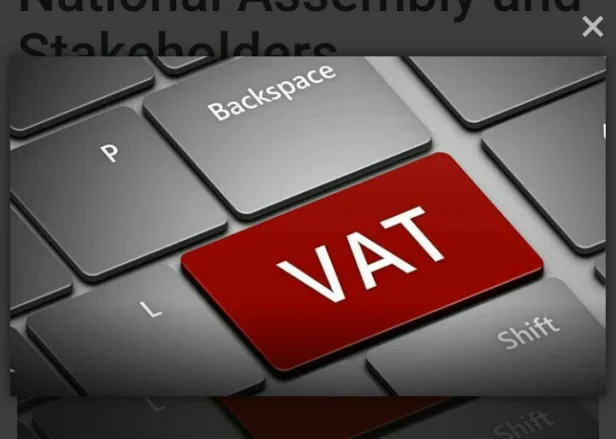Well, except something changes in the state of the economy to ameliorate the very perceived “shege” being experienced and expressed by Nigerians in recent times, it may NOT be a very wise idea to introduce anything upward in terms of product or service by the government.
It is pertinent for all the arms of government to give a listening ears to the reactions of its citizens at such a time as this in our nation, lest it become as been insensitive to the plight of the people being governed, though the intentions of actions may be good, but soothing time of introduction matters.
Members of the national assembly, considering a bill proposing an increase in the value-added tax (VAT), from 7.5 percent to 10 percent, shouldn’t be coming at such a time as this, when too many bills are being introduced concurrently.
Scheduled for increase in 2025 from 7.5% to 10%, the VAT bill is aimed to tax on goods and services consumption levy at each stage of the supply chain where value is served.
To build on the increment, the law makers plans to increase the VAT from 10% in 2025, to 12.5 percent by 2026 through 2029, according to the bill as claimed sighted by the Cable.
“VAT shall be charged on the value of all taxable supplies at the following rates
- 2025, year of assessment – 10%
- 2026, 2027 2028 and 2029, years of assessment – 12.5%
- 2030, year of assessment and thereafter 15%,” the document stated.
Recall that, on May 8, Taiwo Oyedele – chairman of the presidential committee on fiscal policy and tax reforms, had said the VAT rate needs to be increased.
Not forgetting also that, a former Vice President, Atiku Abubakar condemned the recommendation of the VAT hike on September 8, describing it as a “regressive and punitive policy”.
While debunking Atiku’s criticism, minister of finance – Wale Edun, said the VAT rate has not been unchanged on September 9,
In February 2021, the International Monetary Fund (IMF), had advised the federal government to raise the VAT rate to at least 10 percent by 2022.
Rebate or Not? – Corporate Income Tax Considered At 27.5% From 30% By 2025
The bill also deduced that, a reduction in the corporate income tax (CIT), to 27.5% by 2025, down from 30%, and a further cut to 25 percent by 2026 is included.
While companies with less than N20 million turnover are exempted from paying the CIT, states the bill.
“Tax shall be levied for each year of assessment in respect of total profits of every company, in the case of; (a) a small company, at zero percent; and (b) any other company, at the rate of-(i) 27.5% in 2025 year of assessment, and(ii) 25% from 2026 year of assessment,” the document submitted.
“Notwithstanding any provision of this Act or any other enactment, where, in any year of assessment, the effective tax rate of a company is less than 15%, such company shall recompute and pay an additional tax that makes its effective tax rate equal to 15%.
“The provisions of this section shall apply to
- a company that is a constituent entity of an MNE group; and
- any other company with an aggregate turnover of N20,000,000,000.00 and above in the relevant year of assessment.
“The companies covered under this section and the determination of the additional tax payable shall be in accordance with regulations issued by the Service.”
Taiwo Oyedele – the presidential committee on fiscal policy and tax reforms had intially proposed a reduction of the CIT by 5%, maintaining that the tax rate should drop from 30% to 25% to encourage businesses and investors.
Not forgetting the tax withholding regulations which is expected to kick from January 1, 2025, as scheduled by the federal government.
The government might want to rethink implementation time, considering the state of the nation, but rollout of these policies.



